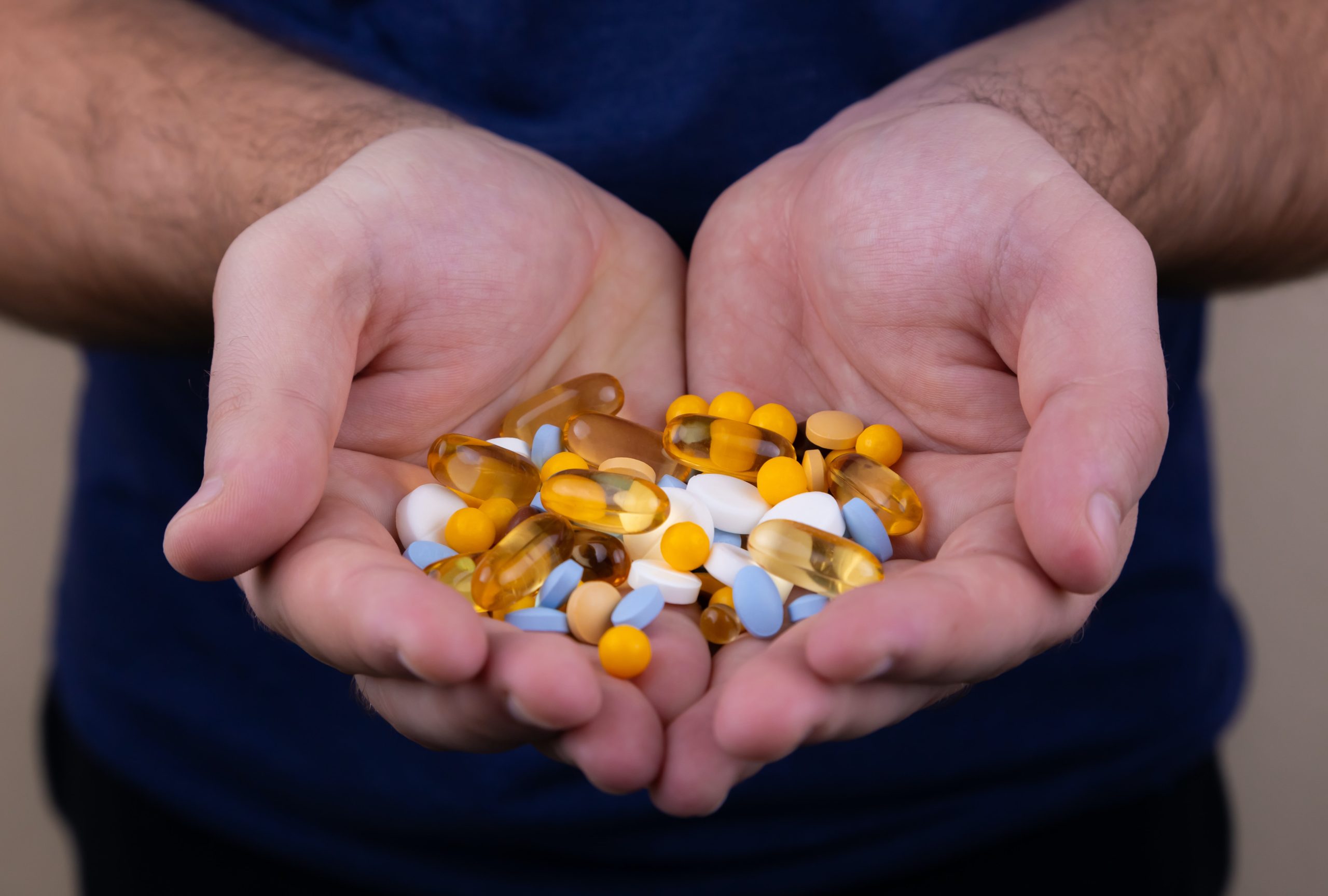The Attack on the Health of our Families and Kids
In just the past few months, we’ve seen all the below assaults on our health and the health of our children. As parents, we need to know what is going on in the world around us for the sake of our children. We shouldn’t just blindly carry on with the “standard” way of living that has been marketed and preached to us throughout our lives, especially now that we have kids that depend on us.
No one has the best interest of your kids in mind like you do. Not the big food corporations that try desperately to market garbage food to your family to meet, and hopefully exceed, their quarterly earnings; not the big pharma companies that are desperately trying to exploit your kids by selling anti-obesity, anti-anxiety, anti-“you name it” meds to them to increase profits; not even your doctor who only makes money off you being sick, rather than being healthy, despite their greatest intentions (and I truly believe many of them do have saint-like intentions, but once money is involved, and the big health insurance has them by the neck, things change, and not always for the best).
Thus, only you, the parent, can be the true harbinger of health and wellness for your kids and family. Why? Love. No one else loves your child as you do. Your love is the only thing that is going to protect them as they grow up in this world of big business that looks at us and our kids as piggy banks, trying to extract as much money from us over our lifetime as possible. There’s no love in that.
I hope the information I share below, and over time through this website, Family Forward Wellness (still in development), and all my social media accounts, will help you make more nuanced decisions when comes to the health and wellness of your family.
Table of contents
- The American Academy of Pediatrics Recommend Pills and Surgery for Obese Children
- Corruption of the Academy of Nutrition and Dietetics
- Newly Appointment Member to Nutrition Counsel by the President of the United States Claims Genetics Primary Cause of Obesity
- NIH-Funded “Food Pyramid” (called the Food Compass by Tufts School of Nutrition) Rates Lucky Charms Healthier Than Steak
- FDA allowing Merck to Continue Selling Diabetes Drug Despite It Having Increased Levels of a Carcinogenic Compound

1. The American Academy of Pediatrics Recommend Pills and Surgery for Obese Children
Big Pharma and Big Medical finally have the backing of the American Academy of Pediatrics to exploit overweight and obese children through pills and knives. These new guidelines are the first time such tactics have been recommended. Although I recognize the growing desire to do something about the rapid increase in childhood obesity hastily, this new acceptance of quick fixes to what is mostly a lifestyle and societal issue will create a future of dependency on medical treatment for these kids. It also provides a scapegoat for parents who aren’t setting the right example of what proper nutrition and a healthy lifestyle look like for their kids.
I think it bares repeating: recommending drugs and surgery to treat a disease in children that are a result of poor lifestyle choices, whether by the child’s admission or through the poor example set by the parent, is going to create a sense of reliance on the medical and pharmaceutical industry for the rest of their lives. These new treatment guidelines essentially say: “Don’t worry families, keep doing what you’re doing. We will take care of you.”
“Obesity is not a lifestyle problem. It is not a lifestyle disease.” – Aaron Kelly, co-director of the Center for Pediatric Obesity Medicine at the University of Minnesota.
— Greg Cello (@gregorycello) January 11, 2023
While I recognize the need to treat obesity, we shouldn’t undermine the significance of lifestyle choices. pic.twitter.com/0q5qW79p7S
Here is a quick breakdown of the new guidelines:
- Children as young as 2 years old are recommended to be sent to “intensive health behavior and lifestyle treatment” programs if they have a body mass index in the overweight or obese range.
- For children ages 12 and up with an obese B.M.I., doctors are encouraged to prescribe weight-loss medications.
- May still offer children ages 8 through 11 years of age with obesity weight loss pharmacotherapy (this fact was hidden deep in the guidelines and shared up front in the summary).
- A breakdown of all the drugs included in the guidelines will be in a forthcoming blog. Still, it’s important to note here that many of the drugs recommended come from big pharma companies that are also corporate sponsors/donors of the AAP, such as:
- Metformin (Merk)
- Orlistat (GlaxoSmithKline)
- Saxenda (Liraglutide) from Novo Nordisk
- Wegovy (Semaglutide) from Novo Nordisk
- Also notable, is that “no current evidence supports weight loss medication use as a monotherapy” which was pulled directly from the guidelines and continues to say “thus, pediatricians and other PHCPs who prescribe weight loss medication to children should provide or refer to intensive behavioral interventions for patients and families as an adjunct to medication therapy.”
- Physicians should offer those over age 13 with severe obesity a referral to a bariatric surgery center.
- It’s worth noting that one study used to back up the academy’s bariatric surgery recommendations involved 81 Swedish teenagers; while cardiovascular health and other illnesses improved, 25% of the patients required additional surgery to resolve complications from the first procedure or the rapid weight loss, and 72% reported nutritional deficiencies.
- Other research shows that bariatric surgery is associated with an increased risk of alcoholism and suicide.
- Link to guidelines for reference and additional details.
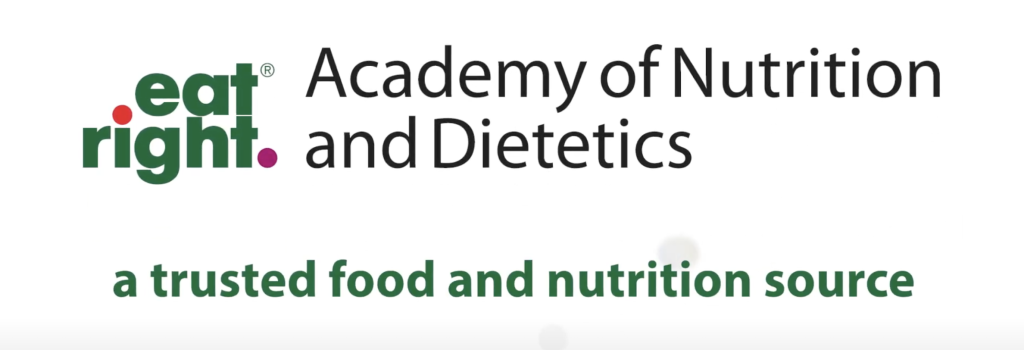
2. Corruption of the Academy of Nutrition and Dietetics
A shocking, but not terribly surprising recently published study, “The corporate capture of the nutrition profession in the USA: the case of the Academy of Nutrition and Dietetics” reveals that one of the leading bodies on nutrition and health in the US has been in bed with the very same companies that sell the very same food and drink products that harm our health.
As summarized in an article by the Guardian:
- “The Academy accepted at least $15m from corporate and organizational contributors from 2011-2017, and over $4.5m in additional funding went to the Academy’s foundation.”
- “Among the highest contributions came from companies such as Nestlé, PepsiCo, Hershey, Kellogg’s, General Mills, Conagra, the National Dairy Council, and the baby formula producer Abbott Nutrition.”
- “The Academy and its foundation also received food industry fundings via sponsorships, which are in effect quid pro quo.”
- “The study also highlights the revolving door between the Academy and industry. Among its staff and board members are current and former public relations staff for companies that represent big food, as well as consultants or employees for large food entities like Monsanto, Sodexo, the Sugar Association, Bayer and the International Food Information Council, an industry front group.”
Essentially, the experts we expect to be invested in safeguarding and advancing the health of our families are invested in companies with which it has sponsorship deals, like PepsiCo, as well as financial contributions from, like Nestlé. The same companies promote garbage food and drinks to parents and kids alike.
It’s. All. About. The. Money. Open your eyes fellow parents and citizens of the world. All is not what it seems.
Here is the link to the study again for reference and additional details.

3. Newly Appointment Member to the 2025 Dietary Guidelines Advisory Committee by President Biden Claims Genetics is the Primary Cause of Obesity
On January 22nd, 2023, Dr. Fatima Cody Stanford was named to the President’s 2025 Dietary Guidelines Advisory Committee. This was a significant appointment in the mere fact that we now have a medical professional, an “expert”, who believes genetics is the primary cause of obesity playing a part in dietary guideline recommendations for the President.
A recently appointed member to the 2025 Dietary Guidelines Advisory Committee by President Biden has been quoted saying that the #1 cause of obesity is genetics on @60Minutes. Why are our leaders and “experts” so hellbent on gaslighting us on the causes of obesity? https://t.co/V8qvxqWmvh pic.twitter.com/pPlC3YGoWT
— Greg Cello (@gregorycello) January 23, 2023
Here is the clip of her from 60 Minutes:
The video clip of the quote by Dr. Fatima Cody Stanford regarding genetics being the leading determinant of obesity that I shared a couple days ago.
— Greg Cello (@gregorycello) January 24, 2023
Pay close attention to what the media feeds you folks. https://t.co/cIILETJbrg
Dr. Fatima Cody Stanford is a physician and researcher who specializes in obesity and related health conditions. While genetics do play a role in obesity, Dr. Cody Stanford’s statement that genetics is the number one cause of obesity may be an oversimplification of the complex interplay of factors that contribute to the development of obesity.
There is no denying that inherited genetic diversity within families certainly contributes both directly and indirectly to disease development. With regard to obesity, genetics do play a role, but it is not the primary cause. Environmental and lifestyle factors, such as a lack of physical activity and a diet high in calories, are major contributors to the development of obesity. Genetics can influence appetite, metabolism, and the distribution of body fat, but these factors alone do not determine an individual’s weight. A combination of genetic, environmental, and lifestyle factors contribute to the development of obesity.
It’s possible that Dr. Cody Stanford is emphasizing the genetic component because of her expertise in obesity and her research may have shown that there are certain genetic variations that make people more susceptible to obesity. But it’s also possible that she may be influenced by the fact that she has received payments from drug manufacturing companies that specialize in making anti-obesity drugs.
Easy. It’s all about the money.
— Greg Cello (@gregorycello) January 23, 2023
So it shouldn’t be all that surprising when it turns out that Dr. Stanford has taken payments from weight loss drug manufacturers as recent as 2021.https://t.co/Y5QlhrJjsG pic.twitter.com/2UghVdAYZ3
I said it already, but I’ll say it again. It’s. All. About. The. Money.
It’s also worth noting, that the first time U.S. Government convened and released its first dietary guidelines for Americans in 1980, this is what happened:
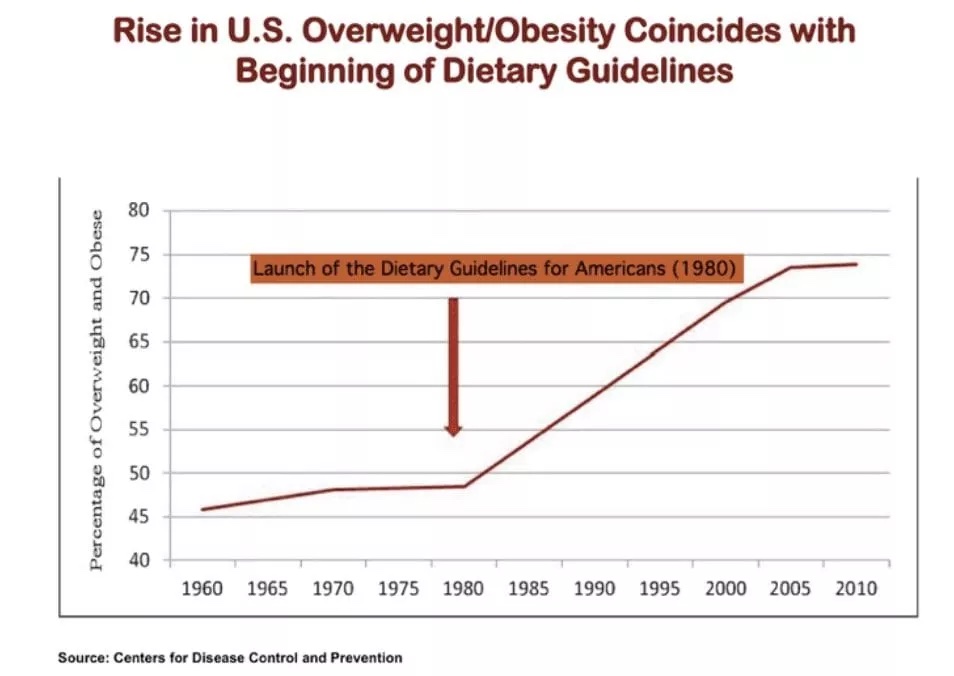
I’ll be curious to see what comes out of this one in 2025…

4. NIH-Funded “Food Pyramid” (called the Food Compass by Tufts School of Nutrition) Rates Lucky Charms Healthier Than Steak
You read that right, a government-funded, academically published food product scoring system, called the Food Compass, classifies Lucky Charms as healthier than steak.

Back on September 28, 2022, Biden-Harris Administration hosted a White House Conference on Hunger, Nutrition, and Health where Dariush Mozaffarian, Dean of the Tufts School of Nutrition, one of the key organizers of the conference, revealed the Tufts Food Compass — which they tout as “the most comprehensive and science-based nutrient profiling system to date”.
The Tufts Food Compass assigns scores to different foods based on a number of factors, including their environmental impact, nutrient content, and health impact. It’s interesting that environmental impact should play a part in the decision of what foods we should it.
The results shared?

As Nina Teicholz says on her Substack:
The Food Compass, which gives top ratings to Cheerios, Lucky Charms and Cocoa Puffs, is absurd on the face of it. In all, nearly 70 brand-named cereals from General Mills, Kellogg’s, and Post are ranked twice as high as eggs cooked in butter or a piece of plain, whole-wheat toast. Egg whites cooked in vegetable oils are also apparently more healthy than a whole, boiled egg, and nearly all foods are healthier than ground beef.
It is possible that the score assigned to Lucky Charms cereal was higher than that of steak due to the criteria used by the Tufts Food Compass. For example, the tool considers factors such as a food’s carbon footprint, water usage, and impact on soil health, which would benefit plant-based foods over animal-based foods. Essentially, we should focus on our sources of food based on the supposed impact it has on the environment.
And there it is. A major focus of the White House Conference on Hunger, Nutrition, and Health was advancing access to plant-based foods and the showcasing of the Tufts Food Compass, which has a bias towards plant-based food, was the highlight. The creation of plant-based food, is in itself, processed food, regardless of the way you label it. This, of course, benefits Big Food.
Now let’s take a look at the funding for the Food Compass:
- Food-PRICE (Policy Review and Intervention Cost-Effectiveness) project [NIH-funded research]
- Danone (a French multinational food-products corporation)
- National Heart, Lung, and Blood Institute of the NIH under award numbers R01HL130735 and R01HL115189
Isn’t it strange that Danone would be one of the funders for a study on the nutritional profiling of food products? Not really, especially when they stand to benefit from it. For reference, here are all the brands they sell in the US:
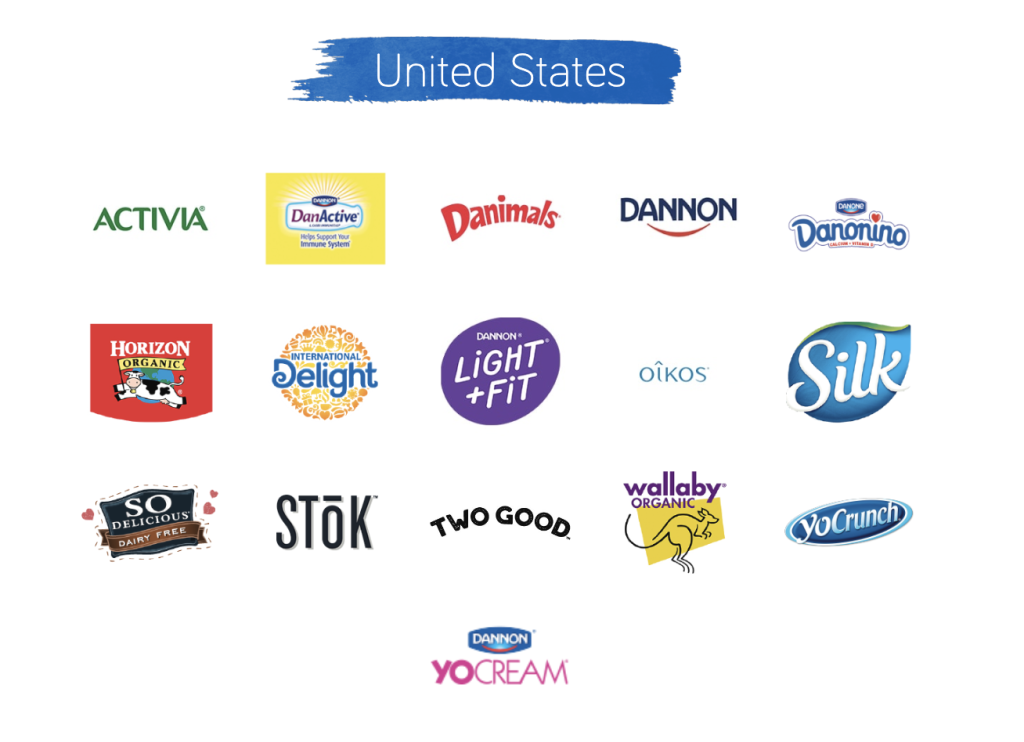
And what about the primary creator of the Food Compass, Dariush Mozaffarian (D.M.) himself? Turns out he’s also in partnership with Danone, along with Acasti Pharma, Barilla, Cleveland Clinic Foundation, and Motif FoodWorks. The full list of his affiliations can be seen below from the published paper on the Food Compass.

Notably on that list is Motif FoodWorks, which develops plant-based meat and dairy products. Bingo.
A White House conference on nutrition with a special emphasis on plant-based foods. A new food product scoring system funded by the government and Big Food that has a bias towards plant-based products. A primary author and conference co-organizer with ties to Big Food and companies developing plant-based food products.
As you can see, the deeper you dig, the worse it appears.
It’s not about your health. It’s about money. It’s about imposing dietary ideologies on you.

5. FDA allowing Merck to Continue Selling Diabetes Drug Despite It Having Increased Levels of a Carcinogenic Compound
Back in August, the FDA reported that Merck had found nitrosamine called NTTP, a carcinogen, at levels exceeding established limits in two of their diabetes drugs: Januvia and Janumet. To avoid drug shortages though, the FDA allowed Merck to continue selling these drugs to the public.
Five months later, Merck has finally determined the cause appears to have arisen mostly from quality control during storage as well as to an extent during manufacturing. Merck also believes it can be resolved by the end of the year. So potentially 18 months, that we know of, that diabetes patients taking these drugs will have been exposed to NTTP.
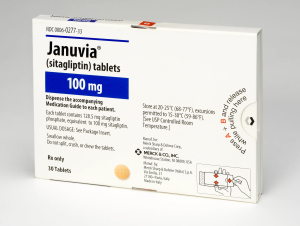
According to Bloomberg data, Januvia was Merck’s third-best-selling drug in 2021, with $3.3 billion in sales, while Janumet had nearly $2 billion in revenue that year. So it shouldn’t be all that surprising that Merck was given clearance by the FDA to continue selling contaminated drugs – that’s a lot of revenue lost if taken off the market. Of course, the rationale was it would put those with diabetes at risk if there was a shortage and couldn’t continue taking the med.
Or, to protect the safety of the patient, the drugs could have been pulled, and physicians could have moved them to a different diabetes medication, of which there are several, while Merck figured out its contamination problem. I’m sure these other pharmaceutical companies would have had no problem ramping up production to meet the demand and capture the freed-up market share. But that would absolutely harm Merck’s bottom line, which obviously cannot happen.
Unfortunately, the best interest in the health of the patient is not always in the best interest of the company and its money.
These sorts of attacks on our health have been going on for quite some time now and I don’t imagine they will let up anytime soon. That’s why I hope to bring it all to your attention and ultimately bring the fight to Big Industry itself someday soon.
Finally, these are all my current views on the matters at hand, and just as I’ve grown to develop them, I can also grow to alter them based on new information and perspective. Please feel free to share yours as I’m always open to learning and growing. It’s for the best of humanity if we all do.
